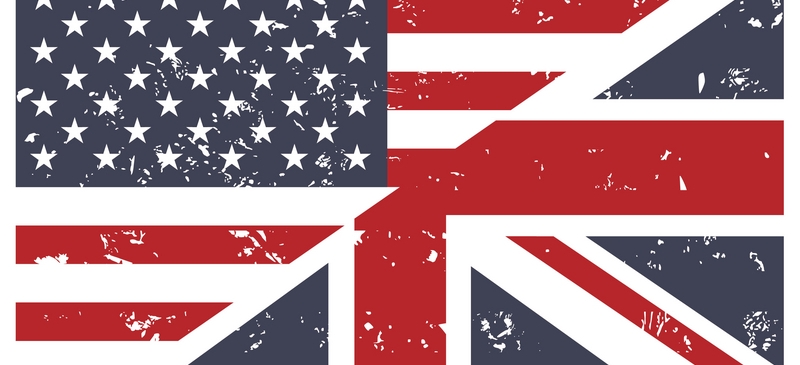
Europe in the US-UK special relationship
by Tomas Valasek
Gordon Brown scarcely mentioned Europe during his visit to the United States, certainly much less than Tony Blair used to. That is understandable. The current prime minister is blessed with the fortune of sharing his time in office with Angela Merkel and Nicolas Sarkozy, two pragmatic, Atlanticist leaders. Unlike Tony Blair, Gordon Brown does not need to worry about keeping the US and EU strands of UK foreign policy from coming apart. This gives him a freer hand in reviewing US-UK co-operation on key foreign policy issues.
Tony Blair sided with Washington over Iraq in part to keep the European Union’s common foreign policy from slipping into an openly anti-American stance. While he believed that removing Saddam Hussein was important in its own right, he also calculated that allying the UK with the US would keep Europe from trying to collectively weaken the US position on Iraq, and possibly elsewhere. (The exact intentions of messieurs Chirac and Schröder will always be subject to different interpretations. But their words and actions during the Iraq crisis strongly suggest that, in addition to heartfelt opposition to the US-led war, they also viewed the crisis as an opportunity to build the EU into a tool for balancing US power worldwide.)
The EU is now shaping the US-UK special relationship in subtle yet sometimes decisive ways. In the case of Iraq Tony Blair would likely have supported Washington irrespective of French or German views. But he clearly also felt that their opposition gave him little option; and that by breaking with Washington the UK would fuel anti-American tendencies around Europe, and possibly precipitate a permanent transatlantic split. The previous prime minister was dealt a terrible deck of cards: siding with Washington, Blair knew very well, meant plunging the EU into a foreign policy crisis – which it did, in 2003.
If only Blair had Gordon Brown’s current options. Four years later, both Chirac and Schröder are gone. Angela Merkel and Nicolas Sarkozy are far more pragmatic and Atlanticist than their predecessors. They are far less tempted than Chirac and Schröder to construct a European foreign policy identity on the basis of opposition to the US. And President Bush, too, has been chastised by the Iraq experience. His second administration is distinctly more multilateralist, less guns and more butter.
The role of Europe in the US-UK relationship has changed correspondingly. Unlike Tony Blair, Prime Minister Brown can afford to not worry about Europe as he reassesses the relationship with Washington. His European counterparts, by and large, have good working relations of their own with the US. Brown is far freer than his predecessor to refashion the priorities of US-UK foreign policy co-operation, knowing that a possible occasional strain in the relationship is not going to have wider repercussions in Europe.
Arguably, Britain has lost some of its usefulness to the US, too. Many find the idea of the UK acting as a bridge between the US and Europe fanciful. But, without UK leadership, the other Atlanticist EU countries, mostly new member-states in Central Europe, would have come under tremendous pressure from Germany and France to form a united EU front against the US. Tony Blair’s words and deeds demonstrably helped shore up support for the US in Europe. Gordon Brown is not likely to be called upon to play the same role. EU members are making far more pragmatic and less ideologically-driven decisions on their relations with the US than they were in 2003. As US-European ties become less confrontational, there is less need for the UK to play its balancing role within Europe.
Now that Gordon Brown is free to judge the US foreign policy on its own merit, without worrying about the EU context, what use did he make of this manoeuvring room at his meeting with George Bush over the weekend of July 25th- 26th?
Arguably, not much. Most of the change that stemmed from the summit was cosmetic. Gordon Brown clearly went to the US resolved to shake off the poodle image without undermining the special relationship. He succeeded in this. His cool, reserved demeanor with the US president restored dignity to London’s standing in the US and in Europe.
As far as substance is concerned, Brown sounded surprisingly hawkish on Iran (although more in his pre-trip press conferences than at the summit itself), while gently creating a little distance from Washington on the issue of a timetable for withdrawing troops from Iraq – Britain wants to be out sooner. But he may have missed an opportunity to clearly state his differences on the Middle East peace process. Britain is gingerly moving towards engaging Hamas and working with it to make it a legitimate and responsible actor. The White House has struck out in the opposite direction. President Bush last week announced a raft of initiatives meant to isolate Hamas and bolster its main rival, President Abbas. Gordon Brown remained largely silent on this point during his press conference with George Bush. This could mean that he agrees or – more likely – that he wanted to avoid a dispute in the open. And that is a pity. Because of the change of leadership in Europe, the prime minister is less constrained in his dealings with Washington than his predecessor. If he believes US policy on the Middle East to be wrong, this was the time to say it.
Tomas Valasek is director of foreign policy & defence at the Centre for European Reform.
